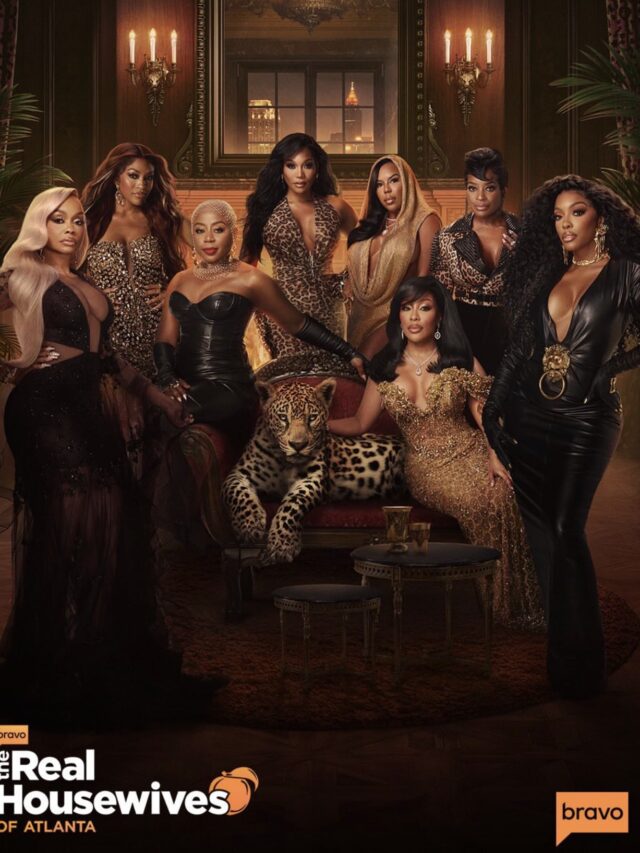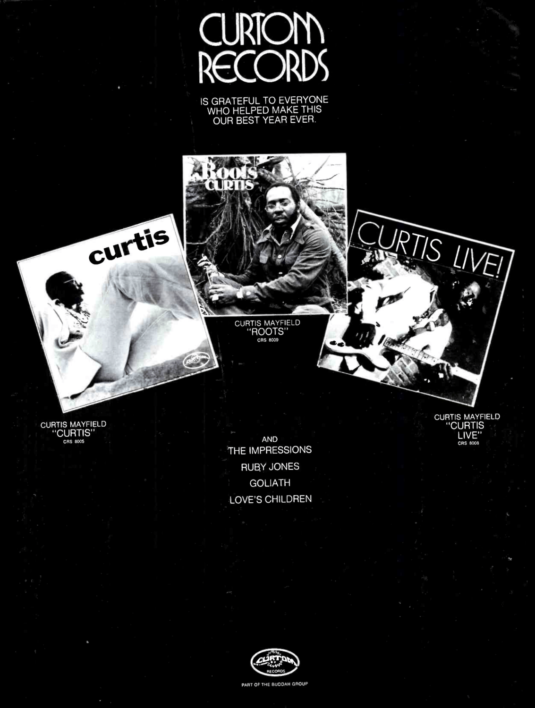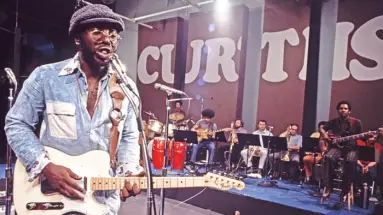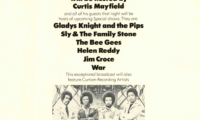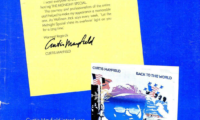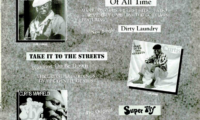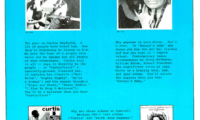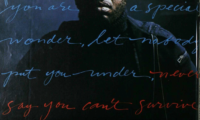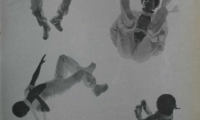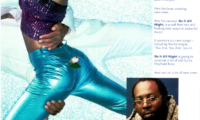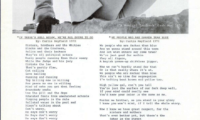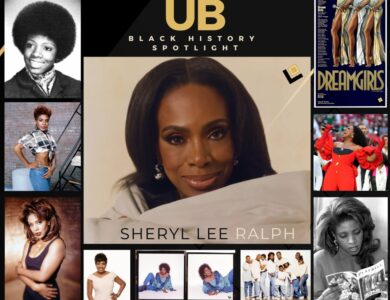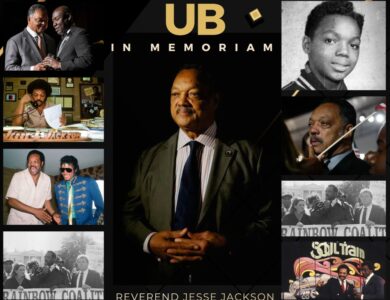UB Black Music Month Spotlight: The Poet of Soul Curtis Mayfield
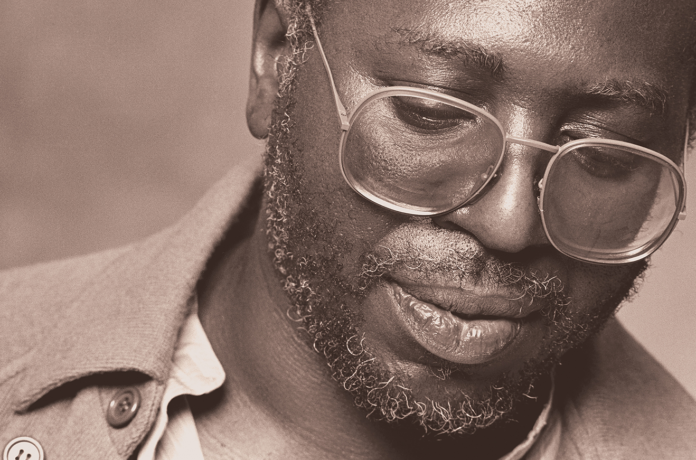
Black Music Month is UB‘s favorite month of the year! We have some great features and interview pieces coming this month, so stay tuned!
Today on what would have been his 80th Birthday, we spotlight the poet and songwriter who was before his time, the legendary Curtis Mayfield!
Curtis was born June 3, 1942 in the Cabrini-Green housing projects, Chicago’s North Side, part of a single parent, seven member family in a small apartment. Mayfield first sang before the public in his grandmother’s Traveling Soul Spiritualists’ Church at age 7, the church where he obtained and retained his lifelong appreciation of black gospel music. He would also appreciate the electric blues music, newly flourishing around him in Chicago, a form of black music soon to have such an impact on young white rockers the world over. Completing the circle of Mayfield’s talent was his mother’s enthusiasm for poetry that he inherited and turned into the song lyric.
Curtis was a self taught on guitar by his very early teens, Mayfield’s approach to this instrument was also distinctive, tuning the guitar to the black keys of the piano. It was to provide him with a idiosyncratic sound throughout his career (learning bass guitar, piano, saxophone and drums came later). He was also singing, in a gentle tenor voice that made much use of falsetto.
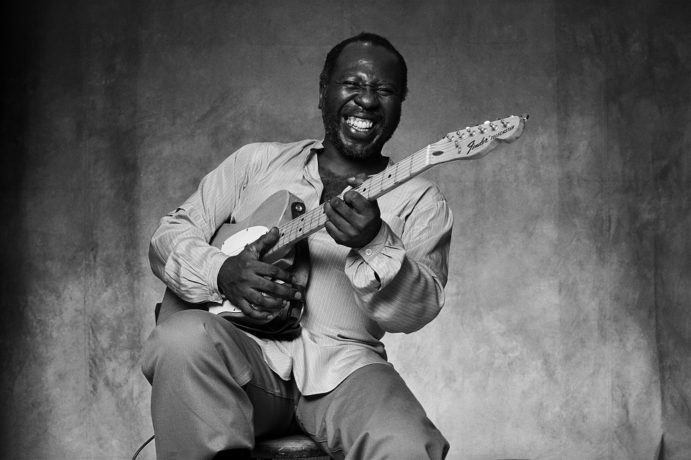
At age 16. Mayfield quit school, leaving to form a five piece group called The Roosters. Later the name would change to The Impressions. The lead singer was Jerry Butler, fellow member of Mayfield’s grandmother’s congregation. In 1958, a year after Mayfield left school, The Impressions scored a national hit “For Your Precious Love” – one of the songs heralding the emergence of Chicago Soul of the Sixties. Butler (and his lead voice) went solo after “For Your Precious Love,” leaving most of the responsibilities for The Impressions to Mayfield, who shouldered it well.
Mayfield was now in charge of a group that had morphed from five to three pieces, a rarity, vocally, in the r&b/soul field at that time. But Mayfield turned it to his advantage, taking over (that distinctive falsetto, again) as lead singer and putting together arrangements and harmonies for three voices that worked to set the group apart. Result: The Impressions became a powerhouse group of the Soulful Sixties, with a consistent string of chart hits. The group even managed to take a stand against the arrival of The Beatles as chart dominators. When the British Invasion started in 1964, The Impressions racked up no less than five Top 20 hits that year, all crafted and tailored by Mayfield
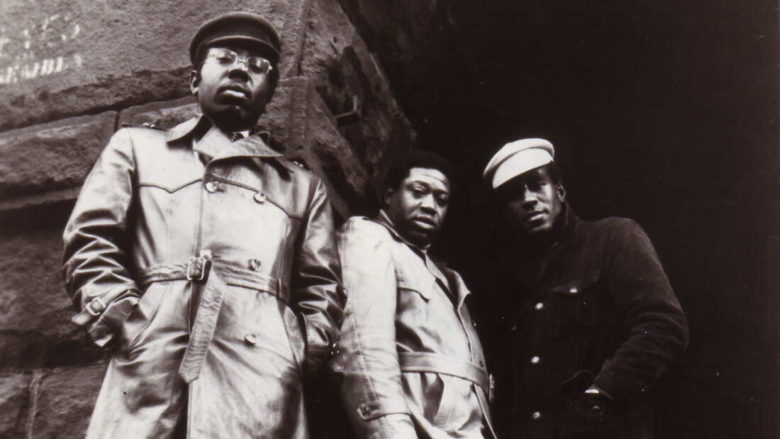
In 1964 Mayfield wrote the prescient “Keep On Pushin’,” a sign that he was entering another phase of his career and, as a young black man, was paying heed to what’s going on and what has to be addressed. “Keep On Pushin’” served as a civil rights anthem, a favorite of Martin Luther King, as was another Mayfield composition, probably his best known, “People Get Ready.” The two songs became embedded in the national movement for civil and social rights, heard at all the rallies and marches, songs-as-inspiration.
Mayfield expressed the need for change in his songs. But he was ever the businessman and he made sure the songs would, to put it bluntly, get airplay and sell records, With its gospel background and soul harmonies, “People Get Ready” is delivered without stridency or alienation, the fist in a velvet glove. The message, though, is positive and firm. Mayfield wrote and recorded other songs to reflect America’s black population’s growing self awareness and the need for change. “We’re A Winner,” “This Is My Country,” “Choice of Colors, “Check Out Your Mind” and more. ”People Get Ready” in particular resonates at any time, whatever the cause, one reason why National Public Radio chose it as one of the 300 most important records of the 20th Century.
An early hit for The Impressions was a gospel powered Mayfield original, “Amen.” Picked for the soundtrack of a 1963 Sidney Poitier film, “Lilies Of The Field,” it became Mayfield’s calling card to Hollywood.
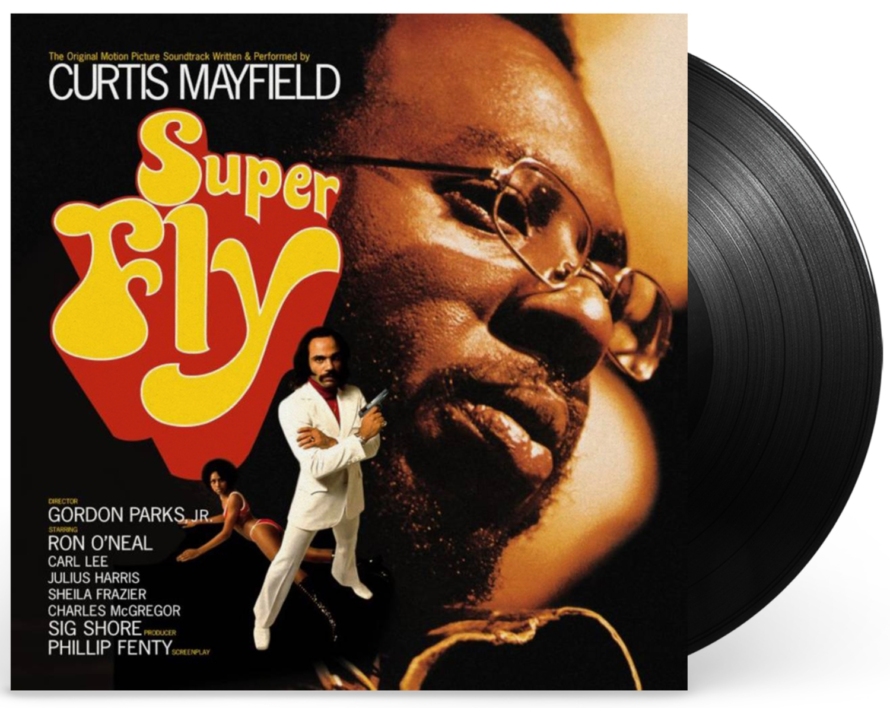
But Mayfield would have to wait almost a decade before he made his real impact, via his most commercially successful recording, the soundtrack to “Superfly,” a “blaxploitation” movie. Here he showed the film capital, that “you didn’t need a room the size of a football field to lay music in…. to be a Henry Mancini.” For the “Superfly” soundtrack, Mayfield was writer, performer, producer and he provided a concise picture-in-song of ghetto existence and its collision with street drugs. “Superfly” and “Freddie’s Dead,” from the movie, have been listed among the greatest inner city soul songs.
While graphic, they do not revel in the excesses of the culture of violence, actually creating a counterpoint to the film’s storyline.
A genuine, if subtle, artist whose artistic and personal reach never exceeded his grasp, Mayfield’s authority as singer, composer, record producer, multi instrumentalist was extensive in whatever field he worked (and there were many), The songs he wrote – lasting monuments – were sometimes vehicles of, and for, transformation, (“message music”) co-opted by those fighting for social change (Martin Luther King, for example).But they remained rooted in Mayfield’s pedigree, gospel influenced, soul structured. “Issues that concerned me as a young black man,” he once said of his songs. “The musical strands and themes of gospel music and preachers I’d heard as a child.” Mayfield entered the recording studio in the late 1950s. At first, he saw the place as an environment for his music. Later it fulfilled another ambition, one to remain important throughout his life.
Within 10 years of his recording debut, Mayfield, now the businessman, owned his own record label. (“One of the handful of nationally important, black controlled companies in the music business,” wrote one writer in the 1960s)…Mayfield crossed many boundaries – musical, social, political, personal. Never more so than after the horrendous accident that left him quadriplegic in 1990. It’s been pointed out that Mayfield, in life, was a modest man despite the prodigious menu of accomplishments he created.
Nothing underlines this more than his last recording, made in 1998. In the studio he was suspended by harness to give gravitational power to his voice, just to find breath to complete a musical phrase or two. Typical of Mayfield, when “New World Order” was released, no mention of this was made. From beginning to end, Curtis Mayfield kept on pushin.’
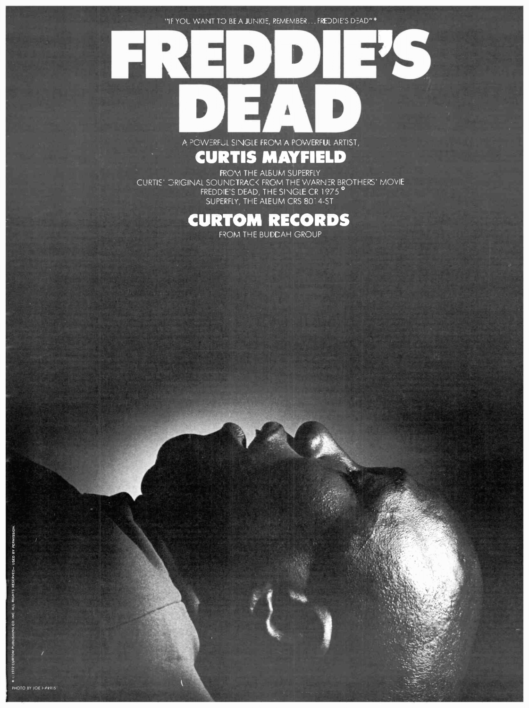
By the time he created the “Superfly” music, Mayfield had left The Impressions. His music was going through yet another change, the guitar playing becoming more prominent, rhythm-based, Critics have noted that Mayfield’s work on the “Superfly” soundtrack in 1972 pointed the way to the gritty realism of the rappers and hip hop artists that followed decades later. Rolling Stone magazine placed “Superfly” at #69 in the list of the 500 greatest albums. Other Mayfield soundtracks followed: the much underrated “Claudine” (with Gladys Knight), “Sparkle” (Aretha Franklin), “A Piece of the Action” (Mavis Staples) and “Short Eyes” (in which Mayfield also acted).
In all these Mayfield was writer, performer, arranger, producer.
 By now Mayfield had his own label, Curtom Records and was severely in danger of claiming the Hardest Working Man In Show Business title, producing The Staple, Mavis Staples, Leroy Hutson, Aretha Franklin, Gladys Knight and the Pips, The Impressions and more, for Curtom and other labels. He moved into funk, acknowledged the Disco Generation (notably with “Do Do Wap Is Strong In Here” (from the “Short Eyes” soundtrack). All this was some way from “People Get Ready” but was cut from the same groove.
By now Mayfield had his own label, Curtom Records and was severely in danger of claiming the Hardest Working Man In Show Business title, producing The Staple, Mavis Staples, Leroy Hutson, Aretha Franklin, Gladys Knight and the Pips, The Impressions and more, for Curtom and other labels. He moved into funk, acknowledged the Disco Generation (notably with “Do Do Wap Is Strong In Here” (from the “Short Eyes” soundtrack). All this was some way from “People Get Ready” but was cut from the same groove.
The day Mayfield was doing something he’d done a thousand times, on August 13, 1990, the soundcheck for an outdoor concert, onstage at Wingate Field, Flatbush, Brooklyn. But high winds toppled the stage lighting rig and Mayfield was underneath. He survived but paralysed from the neck down, his spine crushed in three places. Amazingly, Mayfield found his way back. Unable to play guitar (or any other instrument), he could still sing even through it meant overcoming some daunting obstacles as his final “New World Order” revealed. Teaming with a new generation of artists Mayfield returned to the recording studio.
Curtis Mayfield passed away at age 57, on December 26, 1999. He left behind Altheida, his widow, six sons, three daughters, and seven grandchildren. And millions of devotees around the world.
When Curtis Mayfield died, obituaries, lengthy and laudatory, appeared in media all over the world, in diverse outlets. It was as it should be: Mayfield was many things to many people in a professional career that lasted a half century.
Some of UB’s Archived Curtis Mayfield Promotion!
Take A Trip Down Memory Lane with The Legendary Curtis Mayfield!




